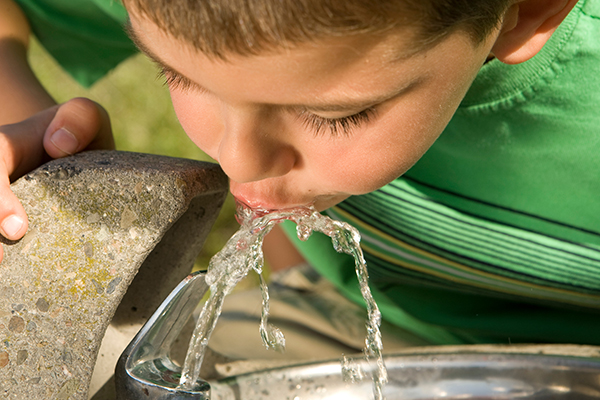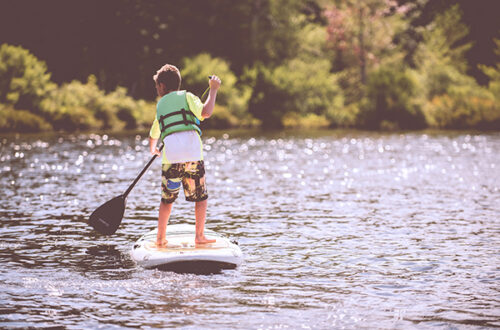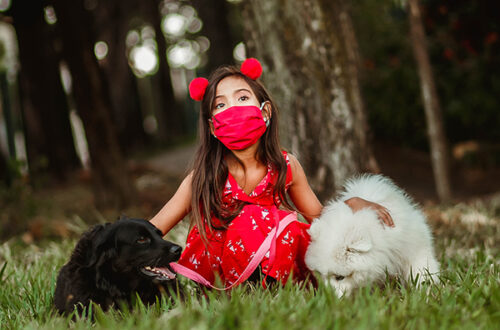
Raise a Water Wise Kid
Raise a Water Wise Kid!
Let’s Enter Another Year of Drought with a Positive Outlook
By Suki Wessling
I have to admit, it’s very easy to feel dispirited about entering yet another summer in a drought that’s now in its third year. But research shows that a positive focus on how we can help makes us more likely to take successful action to solve a problem.
So instead of getting bummed out, let’s work on energizing our families to learn more and become Water Wise Kids.
How bad is it?
On the bright side, Santa Cruz is one of the few counties on this end of the state that are water-independent. That means that we combine enough water from underground and surface sources for residential, business, and agricultural use.
More good news is that our huge December storms put us in a better position than we were in last year, which was critically dry, and the year before, which was particularly warm.
But the fire damage to our water systems in the mountains, combined with lower diversions from streams during the dry winter months, is adding up to a problem for many residents of North County.
“We’re at 25% of normal in terms of stream flow,” says Sierra Ryan, Water Resources Manager for County Environmental Health. “For everybody who gets water from a surface water source, this is going to be a particularly dry summer.”
Mid- and South-County residents, who largely get their water from underground sources and recycled water for agriculture, will be under less direct pressure to conserve. But indications are that what we now call drought is likely to persist into the future of our changing climate. Since we’re all in this together, we need to look for a future of lower water usage.
What can we do?
Lots of us feel like we’re already doing what we can do. I can tell you that in our house, we celebrate every month when our water bill shows that we’re among the water-wisest of our neighbors. But that celebration can also lead to a feeling that it’s someone else’s problem.
It’s not. As parents, the biggest thing we can do is raise water wise kids. Sierra Ryan, mom of a three-year-old, has some advice.
“I think it’s easy to start young and talk about it,” she suggests. “My daughter likes to run the sink and splash in the water so I remind her water’s precious and we have to protect it.”
Even more importantly, Sierra says, is to practice what we preach. “It’s more about demonstrating rather than educating. If you’re hand-watering your plants, you never leave the water running when you do the dishes, and if you talk about water, they’ll pick that up.”
Gamify!
Ever wonder why kids love videogames so much? It’s because game companies have spent enormous amounts of money figuring out how to hold people’s attention.
There are lots of low-tech ways you can gamify water use:
Hourglass shower timers can help your kids see how long their showers are.
Make a fun game out of challenging kids to find new ways to hand wash dishes with less water.
If you catch cold water in buckets for use outside, assign each child a plant to keep alive with their shower water.
At bedtime, try a “dirty enough?” detective game, keeping clothing that’s not dirty to wear another day.
Check out our Water Treasure Hunt that you can cut out and do with your family.
The good news
Santa Cruz County is making significant strides in planning for a water wiser future. The recycled water plant in Watsonville that sends treated water to fields has cut water usage by agriculture dramatically—and recycled water use continues to grow. Planning and building for aquifer-replenishing projects is underway and will be coming online across the County in the next few years.
And County residents are generally aware that there’s no going back. More and more gardens are being replanted with drought-resistant plants, and more families are raising kids who consider water the precious resource that it is. Let’s join together to be Water Wise and kind to this earth.
Resources:
epa.gov/watersense/watersense-kids
This family website has an online game, activity sheets for kids, and tips for parents.
watersavingtips.org/
Water Saving Tips for Santa Cruz county
Suki Wessling is a local writer, educator, and mom of two grown children. Read more and listen to her podcasts at The Babblery, babblery.com.
Librarians Recommend
Picture Books
Water
By Frank Asch
I Know the River Loves Me = Yo sé que el río me ama
By Maya Christina Gonzalez (bilingual)
The Aquanaut by Jill Heinerth
Illustrated by Jaime Kim
We Are Water Protectors
(2021 Caldecott Medal)
By Carole Lindstom
Illustrated by Michaela Goade
The Water Princess by Susan Verde
Illustrated by Peter H. Reynolds
Nonfiction
The Water Lady:
Darlene Arviso helps a thirsty Navajo Nation
By Alice B. McGinty
Illustrated by Shonto Begay
Hey, Water!
By Antoinette Portis
This Raindrop has a Billion Stories to Tell
By Linda Ragsdale
Illustrated by Srimalie Bassani
Water Music:
Poems for Children
By Jane Yolen
Photographs by Jason Stemple
Fiction
Splash Day!
By Nick Sharratt.
Thanks to SCPL Librarians:
Essy Barroso-Ramirez, Jacqueline Danziger, Rowan Rammer,
Julie Soto, and Catherine Upton.
Water Treasure Hunt
Let’s go on a Water Treasure Hunt!
Each question below will require some research and then an optional field trip.
- Where does your water come from?
Visit the source of your water. If you have a well, learn more about how it works. If your water comes from a pumping station, you’ll have to find it—and then find out where the station gets its water. - Where does your water go to?
Find out what happens to water that goes down your drains and toilets. If you have a septic system, find out where the truck goes after it pumps your tank. If you are on a sewer, learn more about your water treatment plant and what happens to the treated water. - What is the nearest natural source of fresh water to your home?
Go find it and consider how it interacts with the land your home is on. Do the chemicals you use in and outside of your home affect the nearby water? Is the water coming from your taps being drawn from that water source? - What days and times do you use the most and least water?
Go to your water company’s website and find out. Consider what you can do to use less during those times. If you have any water-guzzling appliances, learn more about water-efficient ones.


You May Also Like

Fun Summer Activities
March 30, 2022
Teen’s Eye View
March 30, 2022

